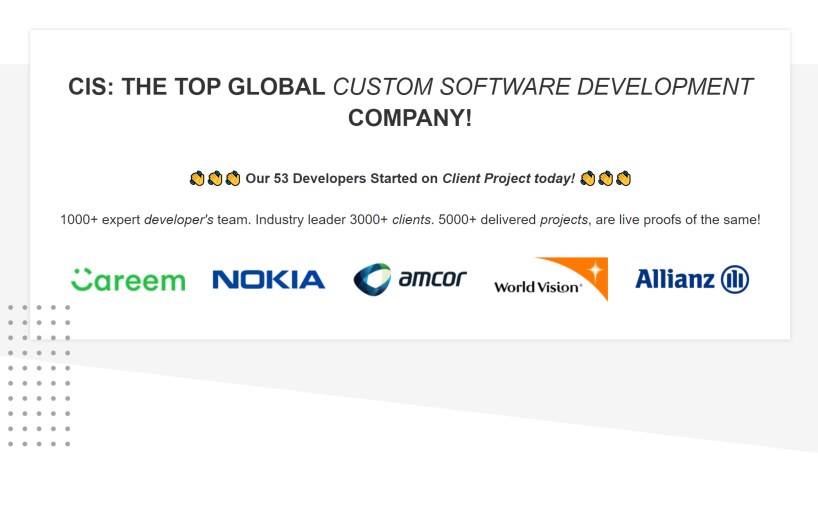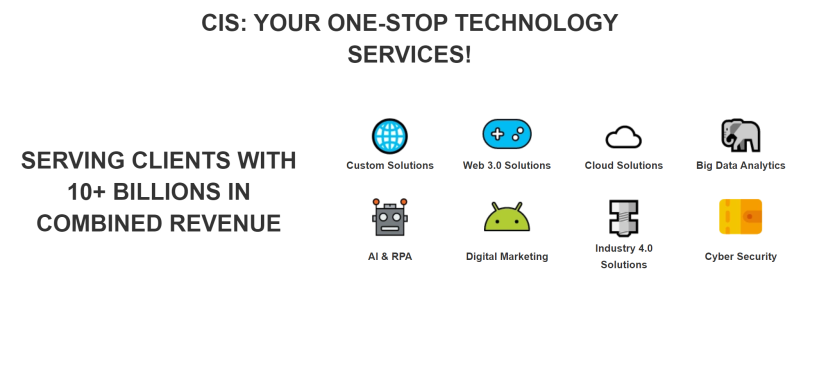Maximizing ROI: The Cost and Benefits of Adopting Sap Erp for Your Business
- SAP ERP - Detailed Analysis by Enterprise Solutions Experts



Why Mid-size Companies and Enterprises needs SAP ERP:
Mid-size companies and enterprises need SAP ERP to manage their business processes more efficiently. SAP ERP offers a wide range of integrated tools that help organizations automate, streamline, and optimize core business functions such as finance, accounting, human resources (HR), customer relationship management (CRM), supply chain management (SCM) and enterprise resource planning (ERP). With the use of these tools, mid-size companies can increase productivity by reducing manual workflows while improving data accuracy. Additionally, they can gain valuable insights into how their businesses are performing due to real-time visibility across all departments. By leveraging this information with predictive analytics capabilities offered by SAP ERP solutions, mid-size companies can make better decisions for long term success.
Benefits of using SAP ERP in Mid-size companies and Enterprises:
1. Increased Efficiency:
SAP ERP helps companies streamline their processes and increase efficiency, saving time and money. It also allows for more accurate tracking of data, helping to reduce errors and improve accuracy.
2. Improved Visibility:
With SAP ERP, businesses can gain better visibility into their operations by having access to real-time information about all aspects of the business from one system. This makes it easier to identify areas of improvement or potential problems before they arise.
3. Cost Savings:
By automating many manual tasks, organizations can save on labor costs associated with those activities that would otherwise require a person's attention. Additionally, since data is stored in one central repository instead of multiple systems, there are fewer hardware investments needed as well as less maintenance required over time which saves additional costs down the road.
4. Scalability:
As businesses grow and take on new projects or expand into new markets, they need an enterprise resource planning (ERP) solution that can scale along with them without requiring major overhauls or rewrites every few years-SAP ERP provides this scalability while still being able to meet changing requirements quickly and easily without sacrificing performance or reliabilityDetailed Features of SAP ERP for Mid-size companies and Enterprises:
1. Financial Management:
SAP ERP provides financial management features that enable mid-size companies and enterprises to track and analyze their financial performance, monitor cash flow, manage accounts receivable and payable, generate reports for tax filing processes, and more.
2. Human Capital Management (HCM):
SAP ERP offers HCM tools that allow mid-size companies and enterprises to manage employee data such as attendance records, payroll information, benefits administration, recruitment processes, training programs, career development plans and much more.
3. Supply Chain Management (SCM):
With the SCM module of SAP ERP software solutions mid-size companies can optimize their supply chain operations by tracking inventory levels in real time; managing orders from suppliers; automating procurement activities; monitoring customer demand signals; streamlining order fulfillment processes etc.
4. Manufacturing Execution System (MES):
The MES module of SAP ERP enables mid-size businesses to plan production schedules according to customer demands with accurate cost estimates; monitor production progress in real time on shop floors using barcode scanners or RFID tags; control quality assurance measures etc., thereby improving efficiency throughout the entire manufacturing process.
5. Business Intelligence & Analytics:
The BI/Analytics component of SAP ERP allows users to gain insights into critical business metrics through interactive dashboards with drill down capabilities across different departments or functions within an organization - this helps them make informed decisions quickly based on solid evidence rather than intuition aloneWho are the Users of SAP ERP:
SAP ERP is used by a wide variety of customers, ranging from small to medium-sized businesses to large multinational corporations. Examples of some of the organizations that use SAP ERP include: Siemens, BMW Group, Unilever, Nestlé, Philips Electronics, Daimler AG and Volkswagen.
How to ensure Data Security and Compliance with SAP ERP:
1. Implement a robust security architecture:
Ensure that all SAP ERP systems are adequately protected from unauthorized access and malicious activities by implementing a strong authentication system, firewalls, virus protection software and other security measures.
2. Utilize role-based access control (RBAC):
RBAC ensures that users only have access to the data they need to do their job and nothing more. This helps prevent accidental or intentional misuse of sensitive information stored in SAP ERP systems.
3. Involve IT personnel in compliance processes:
Make sure your IT team is involved in any compliance process related to SAP ERP so that they can identify potential risks before they become issues and take corrective action when needed.
4. Monitor user activity:
Regularly monitor user activity on your SAP ERP system for suspicious behavior such as excessive downloads or attempts at accessing restricted data sets. Take immediate action if you notice anything out of the ordinary going on with your system so you can limit any damage done quickly and efficiently before it becomes an issue with compliance regulations or legal proceedings down the line..
5 .Educate employees about security policies:
Make sure everyone who has access to your SAP ERP system understands what kind of data is considered confidential, how it should be handled, who has access to it, etc., so that no one accidentally compromises its integrity due to lack of knowledge about company policy regarding data handling proceduresHow SAP ERP can increase organization Productivity, Agility, and Profitability:
SAP ERP can increase organization productivity, agility, and profitability by streamlining processes and automating tasks. It allows for faster decision-making through real-time data access, which in turn leads to improved customer service. SAP ERP also offers integrated analytics capabilities that provide visibility into the performance of different business areas so that organizations can identify opportunities for improvement. Additionally, its built-in scalability enables businesses to easily expand as they grow without having to invest in new hardware or software solutions. Finally, SAP ERP's cost efficiency makes it easier for companies to reduce operational costs while still achieving their desired goals.
How to Measure KPIs and increase Benefits of implementing SAP ERP in Mid-size companies and Enterprises:
1. Establish KPIs:
The first step in measuring the benefits of implementing SAP ERP is to establish key performance indicators (KPIs) that can be used to measure and track the success of the implementation. Examples of KPIs may include time savings, cost savings, increased customer satisfaction, improved operational efficiency or any other metric that is relevant to your organization's goals.
2. Track progress:
Once you have established your KPIs, it is important to regularly monitor and track progress towards meeting those objectives. This will allow you to identify areas for improvement and make adjustments as needed in order to maximize the benefits from using SAP ERP.
3. Analyze results:
After tracking progress over a period of time, it is important to analyze the data collected in order to gain insights into how well your implementation has been going and what areas need further work or attention. This analysis should provide invaluable information on where improvements can be made which can help increase overall benefit from using SAP ERP in mid-sized companies and enterprises.
4. Adjust strategies:
Finally, based on analysis of results gathered through monitoring KPI performance it may become apparent that certain changes need to be made either within processes or with personnel involved with running SAP ERP systems so as better leverage its potential benefits for an organization's operationsHow SAP ERP can increase Employee Morale in your organization:
SAP ERP can increase organization employee morale by providing employees with access to real-time data and analytics that help them make informed decisions. Additionally, SAP ERP allows for streamlined processes, which can reduce the amount of time spent on mundane tasks and free up more time for employees to focus on meaningful work. Finally, SAP ERP provides a central platform where all departments within an organization are connected, allowing for better collaboration between teams and improved communication between employees.
How SAP ERP is Better than its Competitors:
SAP ERP offers many advantages over its competitors, including:
1. Increased flexibility and scalability:
SAP ERP is designed to grow with your business, allowing you to scale up or down as needed. It also supports multiple currencies, languages, and locations.
2. Automated processes:
SAP ERP automates a variety of processes across the organization such as financials, sales orders, inventory management and more - reducing manual effort and increasing accuracy.
3. Improved reporting capabilities:
With powerful analytics tools built into the system users can access real-time data for better decision making in less time than ever before.
4. Comprehensive security features:
SAP ERP provides comprehensive security features that help protect sensitive data from unauthorized access or misuse while providing secure remote access for employees who need it most.
5. Enhanced collaboration between departments:
By integrating all departments within an organization on one platform, SAP ERP enables teams to collaborate more effectively which leads to improved efficiency and productivity across the boardCost to Develop & Implemention of SAP ERP:
The cost of developing and deploying an SAP ERP system can vary significantly depending on the size and complexity of the project. Generally, costs range from $50,000 to several million dollars for larger implementations. Additionally, ongoing maintenance and support costs must be factored in as well.
Why outsourcing implementation services for SAP ERP is better for Mid-size companies and Enterprises:
Outsourcing implementation services for SAP ERP is beneficial for mid-size companies and enterprises because it provides a cost-effective solution that can help them quickly and effectively implement their ERP system. Outsourced implementation services can provide the necessary expertise, resources, and guidance to ensure successful deployment of the system. Additionally, outsourcing eliminates the need for hiring in-house personnel with specialized knowledge on how to set up and use SAP ERP. This saves time and money as well as reducing risk associated with incorrect setup or usage of the software. Finally, outsourcing allows businesses to focus on their core competencies while leaving complex IT tasks to experienced professionals who are familiar with current industry best practices regarding SAP ERP implementations.


